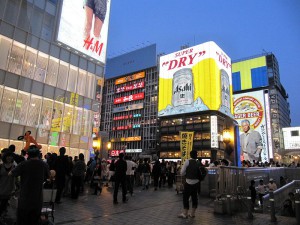Japanese slang terms used in daily life (Part I)
The Japanese language can seem very rigid and formal. It is steeped in tradition and strict rules of acknowledgment of social status. These aspects of speaking Japanese can be lost on native English speakers who are not used to these seemingly rigid and unbending codes of linguistic conduct. But one would be very surprised to discover the casual daily life, dialect, of this ancestrally ancient and eloquent language.
Below you will find an alphabetical list of a few of the most common slang expressions and colloquialisms that are used in everyday Japanese life.
A
Aokusai – あおくさい – This slang term is used to describe someone who is considered “green” meaning inexperienced; also to describe someone who is considered naïve as well.
Are? – あれ – This phrase is used like the English version of “huh?” It can also be used in a moment of surprise! Or it can be used like a “huh?” when someone is confused or perplexed by something.
B
Baba – ばば – This is a very insulting and rude way to say, “Old lady.” This ugly tern is commonly used in Japanese anime and television shows. The insult is mostly used in an ironic manner in order to be funny.
Baka – ばか – If someone says you’re “baka,” a thankyou would not be in order, this phrase means “stupid” or “idiot” in Japanese slang. In this case, when in Kansai it is taken very seriously, but when in Tokyo it is more of a friendly insult than fighting words.
C
Chikusho – ちくしょ – This is the equivalent of the English exclamation of “Damn it!”
Chotto matte – ちょっと待って – This is a friendly way of saying “Can you wait for a second?” Used as a colloquialism that is similar to “Wait a sec.” Using just “matte” gives it more of an irritated tone.
D
Dame – だめ – This slang term means “no good” in casual Japanese.
Dasai – ダサい – This is an exclamation for something that is perceived as very uncool. This slang term is not surprisingly, a favorite of Japanese teenagers.
E
Eeee…. – エエ。。- Excited exclamation! – Used in disbelief in either what someone has said, or a certain given situation in general.
Eroi – エロい – This Japanese word is used to describe something or someone that is considered to be perverted. Not a good thing to be called by Japanese locals while on vacation.
F
Faito! -ファイト – This is a sports term that translates into the English word “Fight!” normally used in competitions.
G
Gomen ne – ごめんね – This term means informally “I am sorry.” But you will have to say it again in the traditional way, if you use this phrase with your boss, teachers, etc.
H
Ha, Ha – は、は – This slang term is used as a conversation filler to acknowledge that someone is listening, such as “um-huh.” This is obviously a good thing because it means the person you are talking to is paying attention to what you are saying.
Hora – ほら – This piece of slang means “Look!” or “See?” – If this Japanese colloquial is drawn out to “Horrraaaa….” It can also mean “I told you so….”
I
Iyada – イヤだ – This is a phrase that means “I don’t want to do it,” or “I don’t want to see,” usually used as a term of disgust or fear.
J
Jaa ne -じゃあね – This is an informal way of saying “see you later.” Once again, don’t use this with teachers, bosses, and other superiors, or you’ll be sorry!
Jiji -ジジ – This is an insulting way to refer to an old man. This insult is also used more often than not, in Japanese anime and television shows than in actual everyday life.
K
Kimoi – キモイ – This term is used to explain or profess a “bad feeling.” It can be used to describe feeling sick to one’s stomach, something disgusting, or even someone suspicious-looking.
Kyapi Kyapi Gyaru – キャピキャピギャル – If someone says this to your wife or daughter on vacation – these are fighting words. The term originally meant “happy, happy girl,” but as the name subtly implies, evolved in societal slang to mean the English version of Bimbo!
M
Mazui -まずい – If you serve your prized family recipe for lunch, and your Japanese guest whispers this word to their spouse, get ready to be embarrassed because it literally means food that doesn’t taste good. It can also be applied to other things and situations though that are just plain terrible.
mecha – めちゃ – This is the equivalent of multiple English terms for “a lot”, “extreme”, “absurd”, or other things of the same ilk.
Now, why don’t you test your Japanese skills by taking a free Japanese level test? Or you could contact us and see what courses can help you with your language learning!
Jaa ne -じゃあね! (“see you later”) with more Japanese slang!



